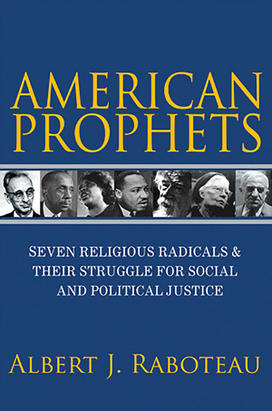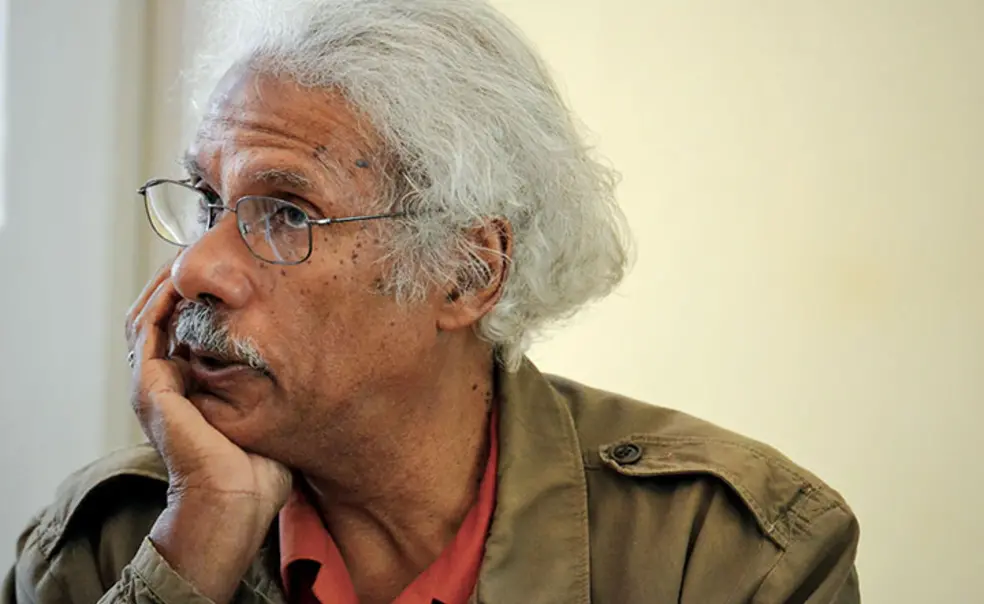The characters in Albert J. Raboteau’s latest book might appear, at first glance, to come from different worlds: a Catholic monk, a Quaker pacifist, a voting-rights activist, a Baptist minister. But in American Prophets: Seven Religious Radicals and Their Struggle for Social and Political Justice (Princeton University Press), Raboteau, a professor emeritus of religion, shows how closely they are aligned. In fact, many of his subjects interacted with and learned from one another.

These are 20th-century prophets, which he defines by drawing on the words of Rabbi Abraham Joshua Heschel as one who “hears God’s voice and feels His heart” like a “fire in the bones,” an imperative to speak out against injustice.
Raboteau’s seven prophets include Heschel; the Rev. Martin Luther King Jr.; Thomas Merton, a Trappist monk; A.J. Muste, a Quaker pacifist; Dorothy Day, founder of the Catholic Worker movement; Baptist minister Howard Thurman; and civil-rights activist Fannie Lou Hamer, all of whom lived and worked in the early- to mid-20th century.
Religious devotion was integral to all of their work, according to Raboteau, and fighting injustice was a crucial expression of their religious commitment. “They were moved by compassion for others to ... struggle for social and political justice and were very successful in moving others to their causes,” Raboteau says in an interview.
Merton, a well-known public intellectual, wrote for a broad audience about King’s work in the civil-rights movement and taught a class in his monastery using King’s writings. Merton also helped Heschel with an important Catholic Church document on anti-Semitism, and Muste — a prominent labor activist and ardent pacifist — visited Merton at his monastery. Heschel, a close friend of King, walked arm-in-arm with him during the 1965 March on Selma.
Day, a proponent of pacifism and civil disobedience, created a network of “hospitality houses” for people living on the margins of society, and many of Merton’s writings about the civil-rights movement were published in her progressive newspaper.
“These people had religious experiences that opened their eyes and their hearts to experience the importance of the likeness of God in others, the importance of building community, and the importance of changing society,” Raboteau says.
Thurman ran a pioneering biracial ministry in California. He recalled walking by the sea as a child and sensing that all of reality was part of one “breathing lung.” This concept helped inspire Thurman’s lifelong struggle for radical nonviolence, which shaped a generation of civil-rights activists — including King.
Hamer, a voting-rights activist who grew up under Jim Crow in one of the poorest counties of Mississippi, emphasized the futility of hatred even amid great struggle. “Help us communicate with white people,” she told a group of college students who had come to Mississippi during the Freedom Summer of 1964. “How can we say we love God and hate our brothers and sisters?”
Raboteau hopes the book will shift the thinking of readers who believe that religion is becoming a divisive force in the world. In the conclusion, he discusses the 2015 shooting of nine black parishioners during a Bible-study course in Charleston, S.C. The victims’ families surprised the world with their forgiveness — but it’s a reaction that many of the figures in his book would have supported, he believes. “Religion can be a powerful motivator for making life better,” Raboteau says. “We need to understand and embrace the ways that religion can allow us to keep fighting for justice, even when it seems very difficult.”












No responses yet